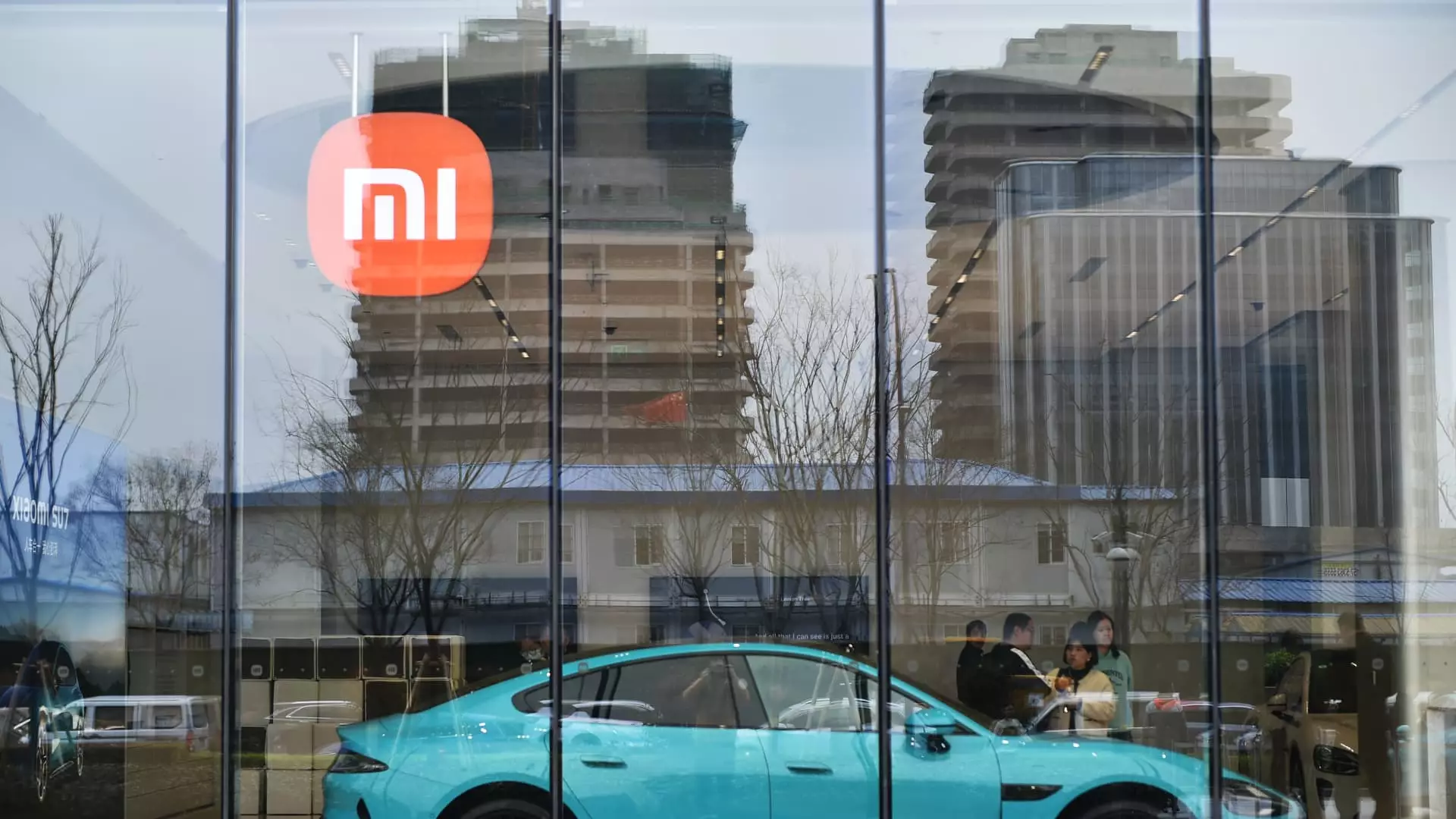The recent launch of Xiaomi’s SU7 electric car has sent shockwaves through the Chinese market, causing a 15% surge in the company’s stock when the Hong Kong market opened on Tuesday. This development comes at a time when the electric car industry in China is becoming increasingly competitive.
Xiaomi’s Competitive Edge
Xiaomi’s decision to price the SU7 at a significant $4,000 less than Tesla’s Model 3 has positioned the company as a major player in the electric car market. Not only that, Xiaomi has also claimed that the SU7 offers a longer driving range compared to its competitors. These factors have undoubtedly contributed to the overwhelming demand for the new electric car.
Xiaomi’s online store currently shows wait times of at least 5 months for a basic version of the SU7, indicating a strong consumer interest in the product. The company reported receiving orders for more than 50,000 cars in just 27 minutes since sales started, demonstrating the popularity of the electric vehicle.
Price Reductions and Government Policies
In response to Xiaomi’s move, Chinese EV startups Xpeng and Nio have announced car purchase subsidies of 20,000 yuan and 10,000 yuan respectively. This competitive pricing strategy can be attributed to the Chinese government’s policy efforts to stimulate consumption in the electric vehicle sector. Despite these initiatives, the growth of new energy vehicles in China seems to be slowing down, with penetration rates reaching a plateau.
Performance of Other Players
While Xiaomi, Xpeng, and Nio are making significant strides in the electric car market, established players like Li Auto and Huawei’s Aito are also experiencing growth. Li Auto, for instance, delivered 28,984 cars in March, although this figure fell short of the company’s expectations. Similarly, Nio and Xpeng reported lower delivery numbers for the same month, highlighting the intense competition in the market.
Despite the challenges faced by some players, industry giants like BYD continue to dominate the market. BYD sold 139,902 battery-powered passenger cars and 161,729 hybrid vehicles in March, reaffirming its position as a leader in the industry. The company’s total passenger car sales saw a significant increase compared to the previous year, showcasing its strong performance in the electric vehicle market.
Xiaomi’s entry into the electric car market with the SU7 has disrupted the status quo and intensified competition among players. While established companies are facing challenges, new entrants are quickly gaining traction, reshaping the landscape of the Chinese automotive industry. As the market continues to evolve, it will be interesting to see how companies adapt to changing consumer preferences and government policies in the pursuit of sustainable growth.

